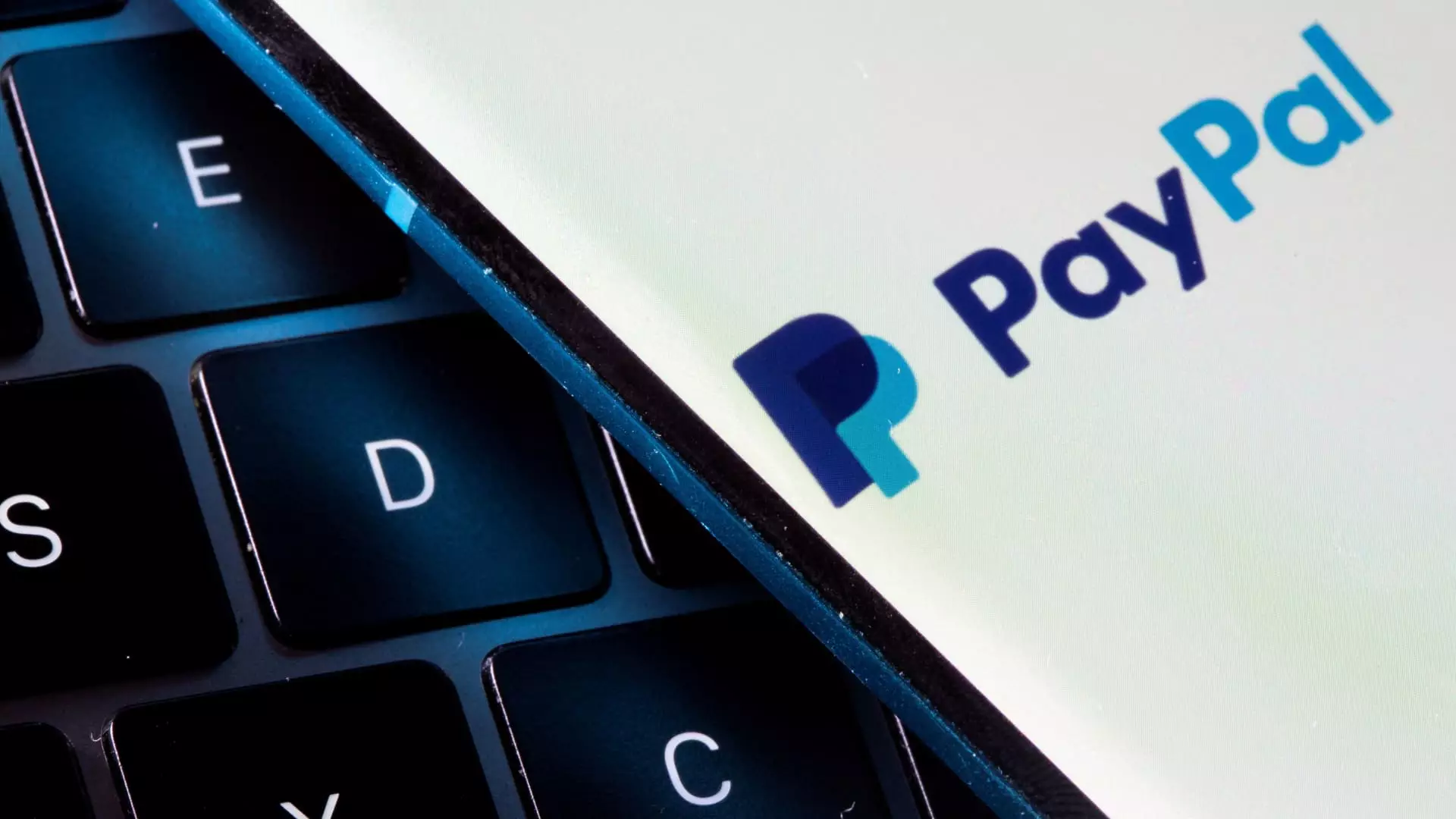In the ever-changing world of fintech, understanding the intricate relationships between consumer behavior and economic policy is crucial. As PayPal, Block, and Affirm prepare to unveil their earnings reports, they stand at a precarious juncture. With a collective dependence on consumer spending, these companies reflect not just their individual strengths and shortcomings but the broader economic health of a nation grappling with increased tariffs, inflation, and an uncertain financial landscape. The worrying trend is clear: as consumers tighten their belts in these turbulent times, the financial giants that thrive on their spending may be forced to navigate choppy waters.
Wells Fargo analysts have underscored the vulnerability of these companies to macroeconomic fluctuations, particularly with 90% of PayPal’s revenue deriving from consumer-driven transactions. The significance of this statistic is hard to overstate; these businesses are not merely digital wallets or payment processors. They are barometers of retail health and indicators of consumer confidence. The looming end of tariff exemptions for Chinese imports, effective from May 2, raises alarm, hinting at a potential shock to the e-commerce ecosystem that fuels these fintech companies.
The Tariff Tsunami: A Wake-Up Call for Investors
The overarching concern is the impact of President Trump’s recent tariffs, which could escalate into a catastrophe for low-cost, cross-border e-commerce transactions. Analysts reckon that the end of de minimis trade exemptions will significantly pinch companies like Temu and Shein, which incidentally could put hefty pressure on the payment infrastructures optimized for these transactions. The anticipated pressure is not just theoretical; Wells Fargo’s price target on PayPal has already taken a hit, reflecting an atmosphere of caution as the realities of increased import costs sink in.
As investors anxiously digest the implications of potentially punitive tariffs, it feels like the financial markets are undergoing a trauma reminiscent of the early COVID-19 days. The initial plunge in stock prices for these firms—a staggering 23% for PayPal, 32% for Block, and 19% for Affirm—could be indicative of a broader fear. The tech-heavy Nasdaq, down only 10% comparatively, reinforces this. PayPal is the first to report earnings, a bellwether that could forecast fortunes across the sector. The sense of dread surrounding these reports might not only stem from macroeconomic turbulence but also from their underlying business models, which appear vulnerable in the face of changing consumer dynamics.
Mixed Messages and Market Uncertainty
Navigating this financial labyrinth is complicated by the mixed signals emanating from the Trump administration regarding trade policy. Just recently, an executive order introduced tariffs on more than 180 countries. The subsequent announcement of a 90-day pause for many of these tariffs was a temporary sigh of relief but did little to assuage fears regarding the economic implications of unchanged tariffs on Chinese imports, which stand at an alarming 145%. Amidst this confusion, companies are floundering, often admitting they struggle to provide clear forecasts, resulting in an information vacuum that breeds anxiety among investors.
On Alphabet’s recent earnings call, Google executives echoed this sentiment. The impending end to trade loopholes is expected to create a slight headwind, notably for their advertising revenue, further emphasizing the interconnectedness of these companies. What affects consumer spending today impacts revenues downstream in unimaginable ways. The more volatile the environment, the harder it is for these companies to maintain buoyancy. The ripple effect of macros, from inflation to trade policies, unfolds deeply within their business models, forcing these fintech behemoths into a precarious balancing act.
Projecting Future Growth Amidst Economic Forecasts
The current forecasting landscape appears grim, particularly for PayPal, which may struggle to meet revenue growth expectations of a mere 2%. Analysts are setting thresholds lower, projecting only a minimal 5.5% growth in branded checkout volume—strikingly optimistic in this context. Block is facing similar scrutiny, with its Cash App user growth stagnating and its Afterpay division tightening credit to mitigate risk. The notion that small businesses and low-income consumers could curtail future growth introduces another layer of complexity in their projections.
Meanwhile, Affirm’s somewhat robust growth statistic of 36% in revenue could be misleading if the overall consumer spending cools down. This paradox between numbers and realities illustrates the fragility of the financial health these companies rely upon. As consumers have rushed to buy ahead of looming tariffs, some have speculated this “pull forward” may only serve to obscure the real operating conditions they face in what could soon be a restrained spending environment.
The financial landscape for fintech firms like PayPal, Block, and Affirm feels like a precarious tightrope walk. They’re essentially picking their way through a minefield of economic pressures while trying to maintain a semblance of growth and profitability amidst an ocean of uncertainty. The coming weeks will be critical for these companies, and as shareholders, employees, and the market hold their breaths, one has to wonder: will they emerge unscathed, or are these just the first tremors of a larger economic quake?

